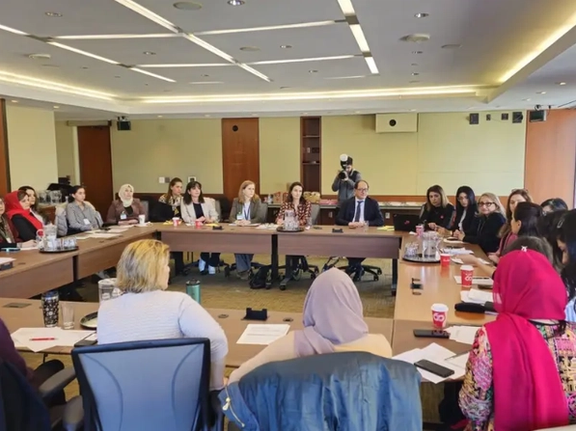Afghan & Iranian Activists Ask Canadian Parliament To Criminalise Gender Apartheid

A group of Afghan and Iranian activists have submitted a request to the Canadian Parliament, urging for the criminalisation of gender apartheid.

A group of Afghan and Iranian activists have submitted a request to the Canadian Parliament, urging for the criminalisation of gender apartheid.
The request was submitted by Ali Ehsassi, a representative of the Canadian Parliament, who has stated that gender apartheid is a crime against humanity.
This petition was prepared by two organisations defending women's rights in Canada.
In the petition by these institutions and the activists, it has been stated that Canada can play a central role in raising global awareness and gaining international support to eliminate organised discrimination against women and girls in Afghanistan and other countries.
They asked the Canadian government to support the plan and implementation of a legal framework at the United Nations that addresses the issue of gender apartheid.
According to these activists, the framework should put forward explicit obligations and mechanisms aimed at preventing gender discrimination.
They are also urging Canada to collaborate with the UN Committee on the Elimination of Discrimination against Women in formulating a "general recommendation" that acknowledges international obligations to prevent gender apartheid.
Additionally, the activist called for Canada's support for a new UN convention that would criminalise gender apartheid.
Members from two women's rights organisations, accompanied by former women representatives from the Afghan Parliament, as well as Afghan and Iranian activists, attended the Canadian Parliament on Thursday. They met with 10 members from the House of Representatives and the Canadian Senate, to discuss the petition.
They asked these representatives for their support in expediting the International Criminal Court's investigation into the actions of the Taliban. The activists emphasised on the critical need to investigate gender-based harassment within the Taliban regime as a crime against humanity.
On Thursday, Ali Ehsassi formally introduced the petition from Afghan and Canadian institutions and activists in the Canadian Parliament. The parliamentary session coincided with a significant call from Richard Bennett, the UN Special Rapporteur on Human Rights, urging member states to submit a complaint against the Taliban to the International Criminal Court in The Hague.
Bennett emphasised that the Taliban's actions constitute sexual harassment and persecution of Afghan women, categorising it as an instance of a crime against humanity.
Gender apartheid has not been criminalised in the international laws, but Afghan and Iranian activists with the support of figures such as Narges Mohammadi, Nobel Peace Prize laureate; Shirin Ebadi, Nobel Peace laureate; and Sima Samar, the former head of Afghan Independent Human Rights Commission, requested this.
In its two-and-a-half-year rule, the Taliban has imposed extensive restrictions on women’s rights, including social activity, employment, education, and travel.
Numerous domestic and international activists, as well as human rights experts, believe that the Taliban's directives and treatment of Afghan women and girls exemplify a form of "gender apartheid”.